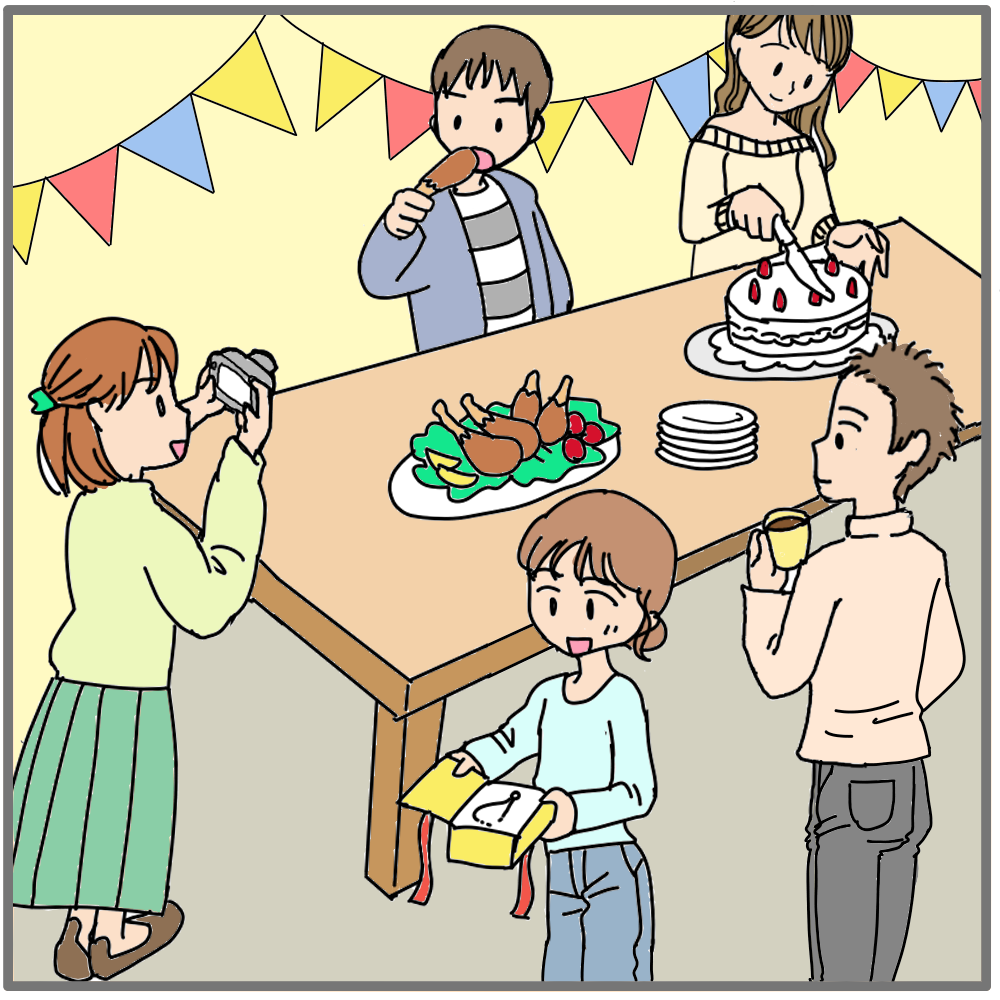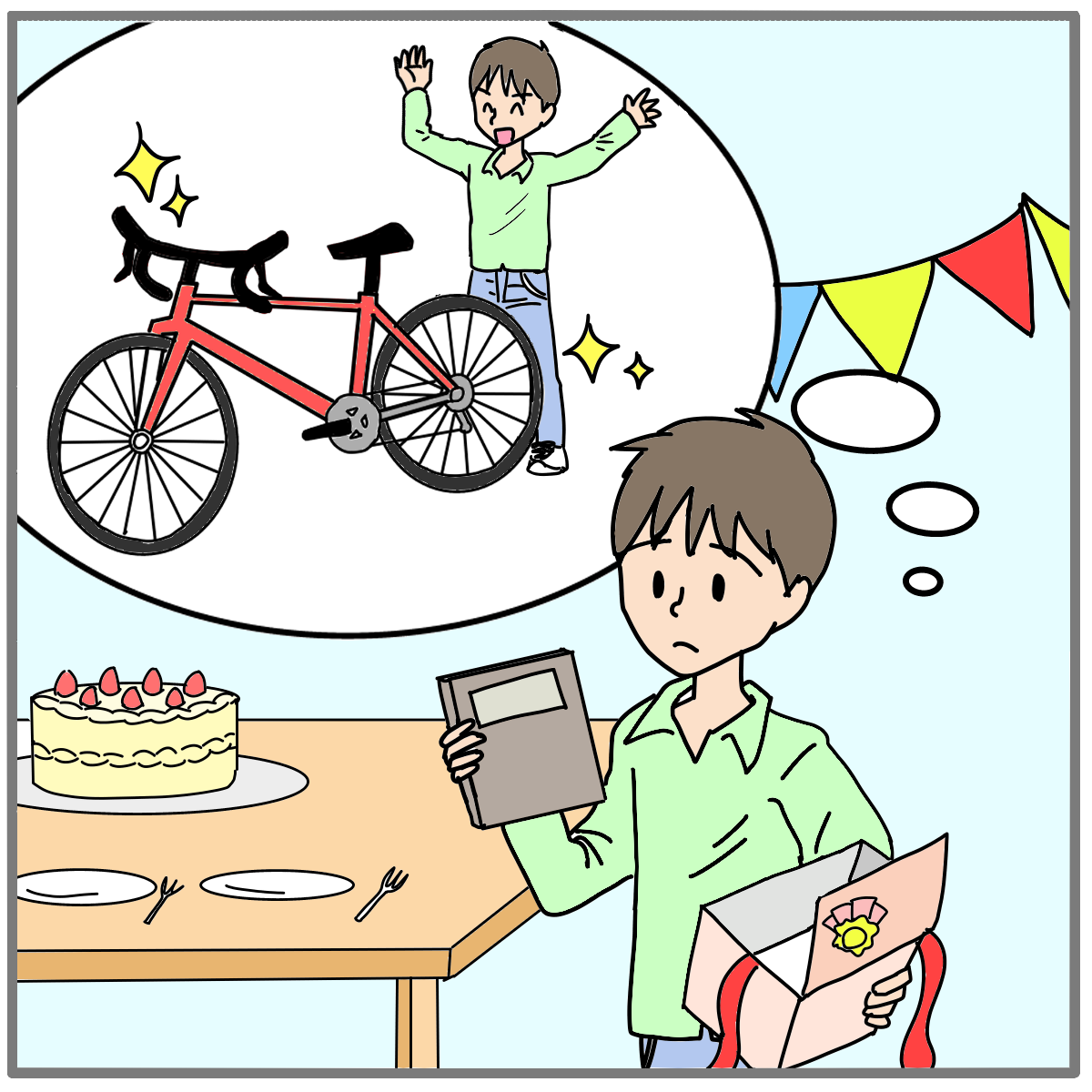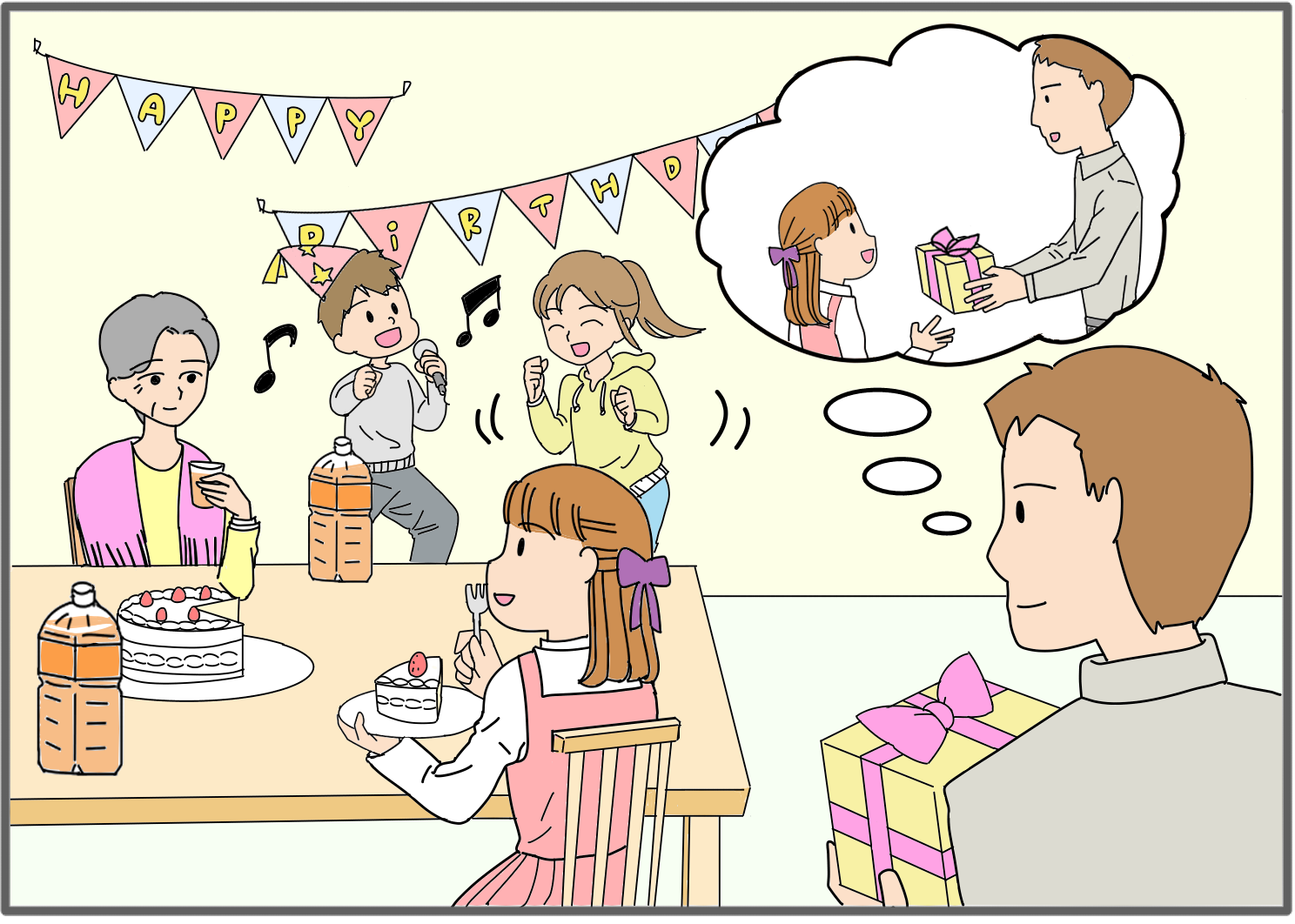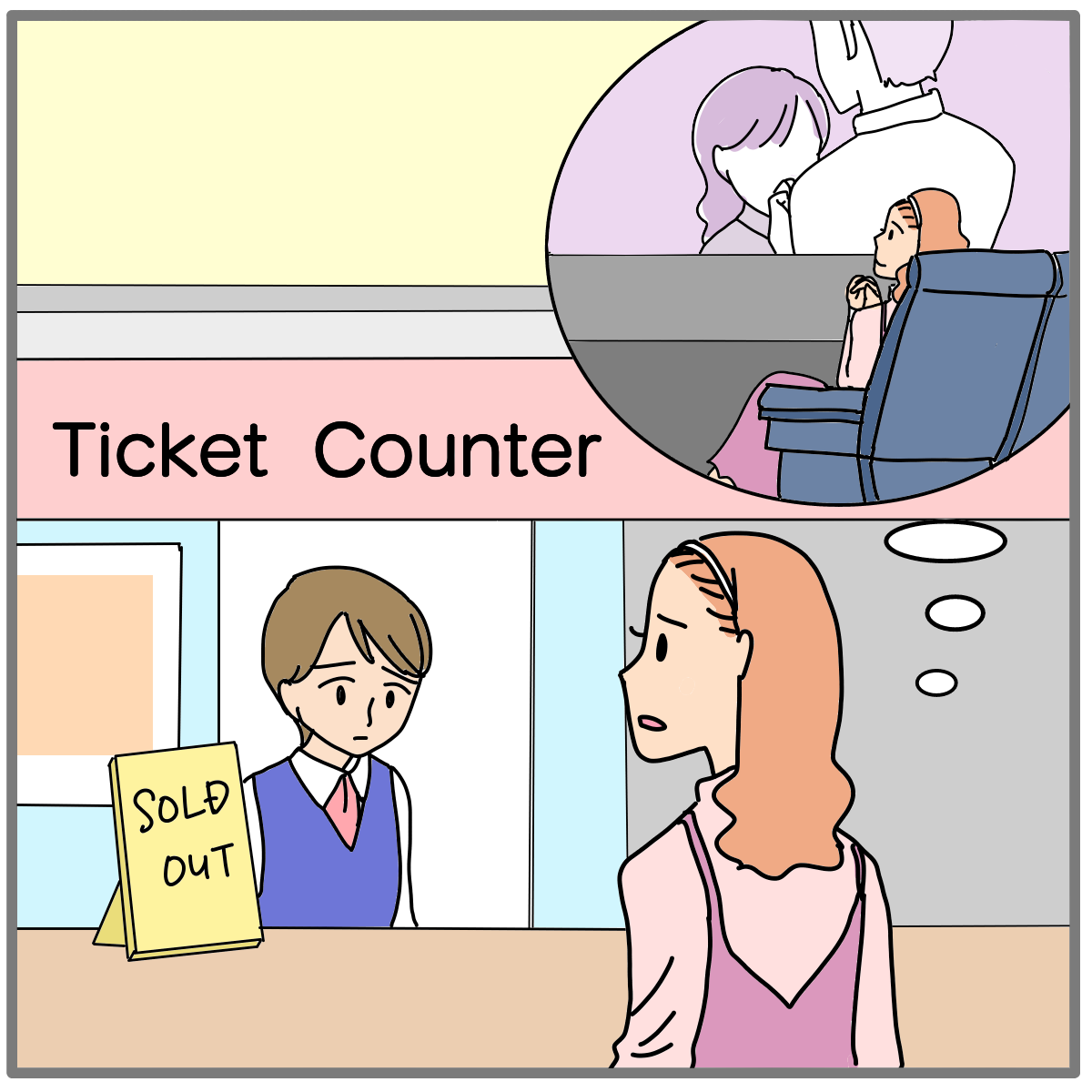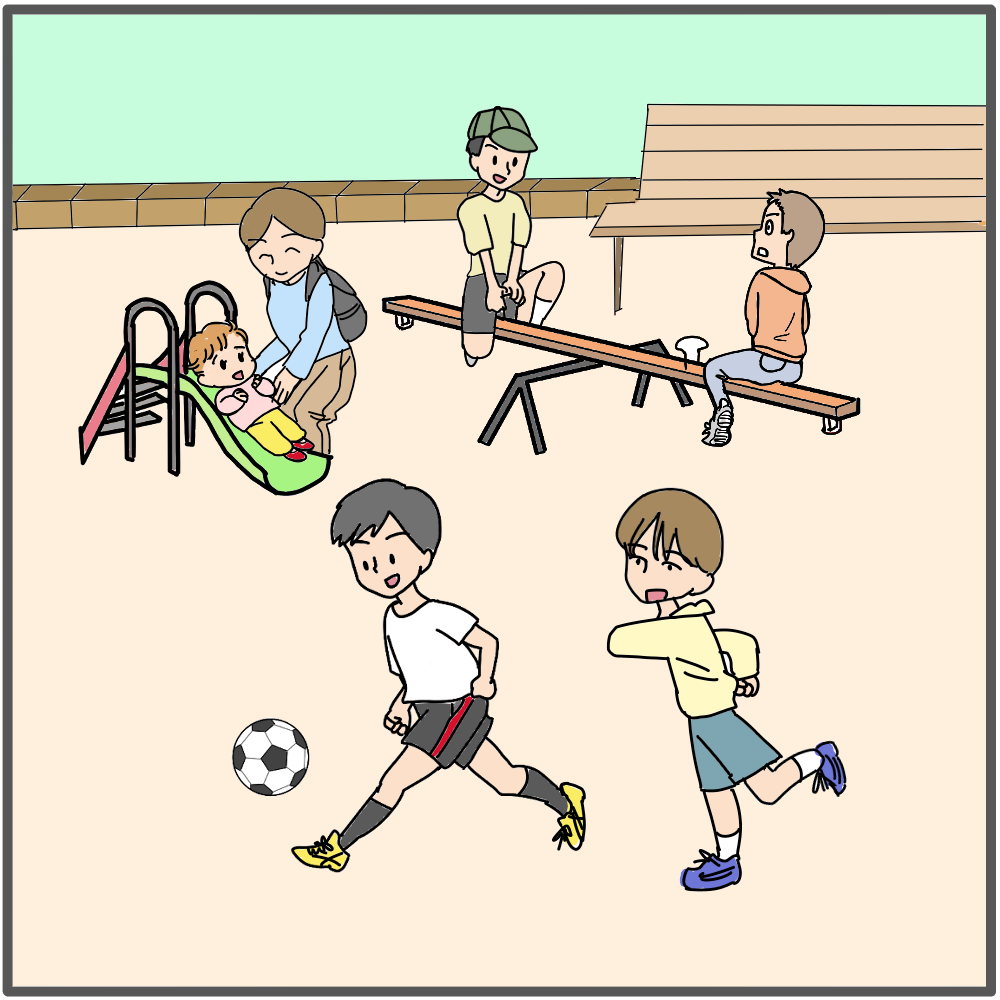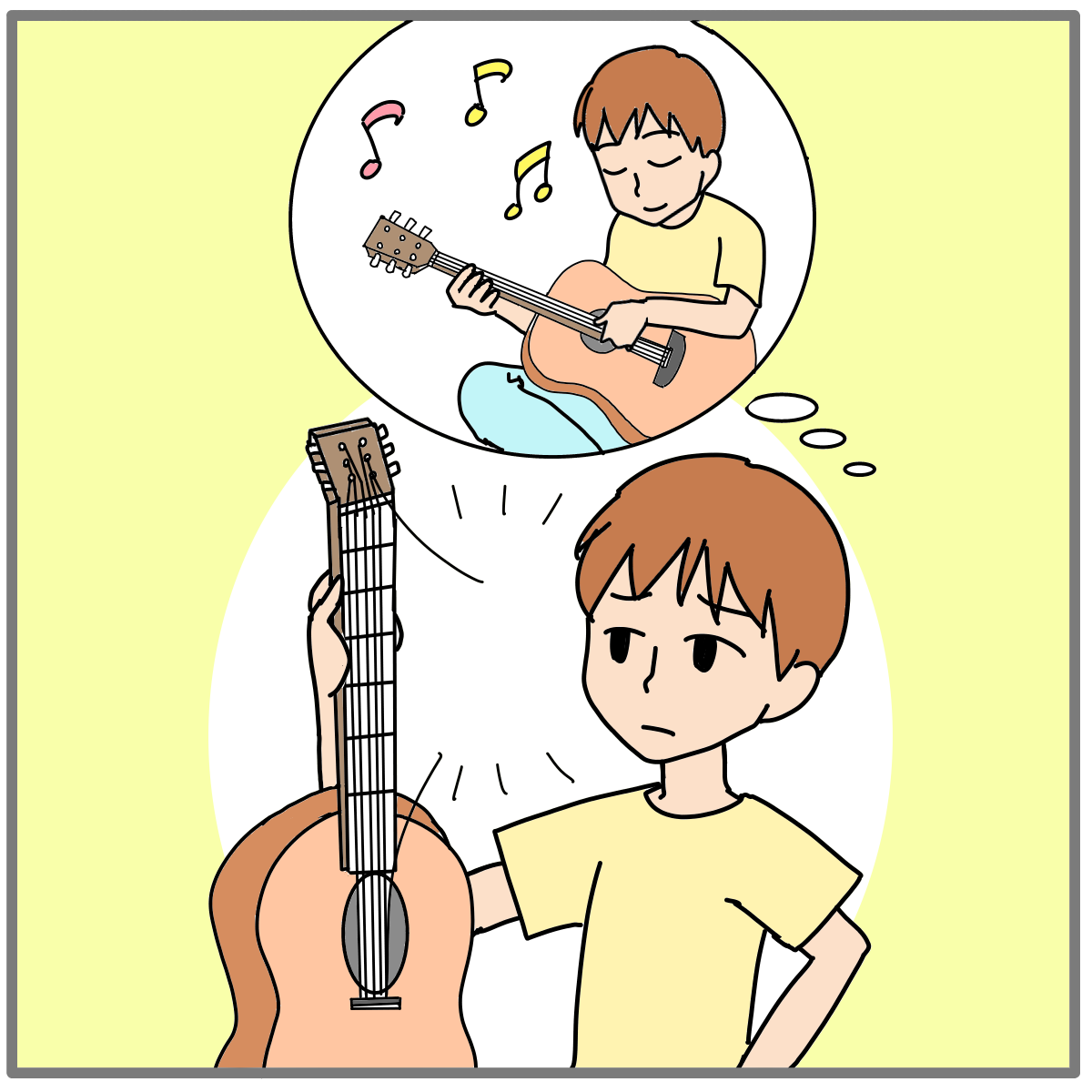PART A_1
Please read the passage aloud, starting from the title.
文章を読みましょう。タイトルから読み始めてください。
(Please send the mispronounced words and expressions to your student.)
PART A_2
Vacation
Many people go on different types of vacations. Some people like to rest or stay at home with their families. Some people travel overseas, so they can have exciting experiences.
PART A_3
I will ask you a question. Please answer based on the passage. Your answer should start with “Because…”
講師が質問をします。文章をもとに答えてみましょう。 また、答えは Because から始めて下さい。
PART A_4
| Question: | Why do some people have exciting experiences? | |
| Answer: | Because |
PART A_5
Now, let’s review your answer.
ではあなたの答えを復習してみましょう。
(Please review your student’s answer by sending the correct answer in a complete sentence. After that, ask your student to read aloud his or her corrected answer.)
PART A_6
PART B_1
Please look at the picture below. Then, I will ask you questions about it.
下記のイラストを見てください。講師が質問をします。
PART B_2
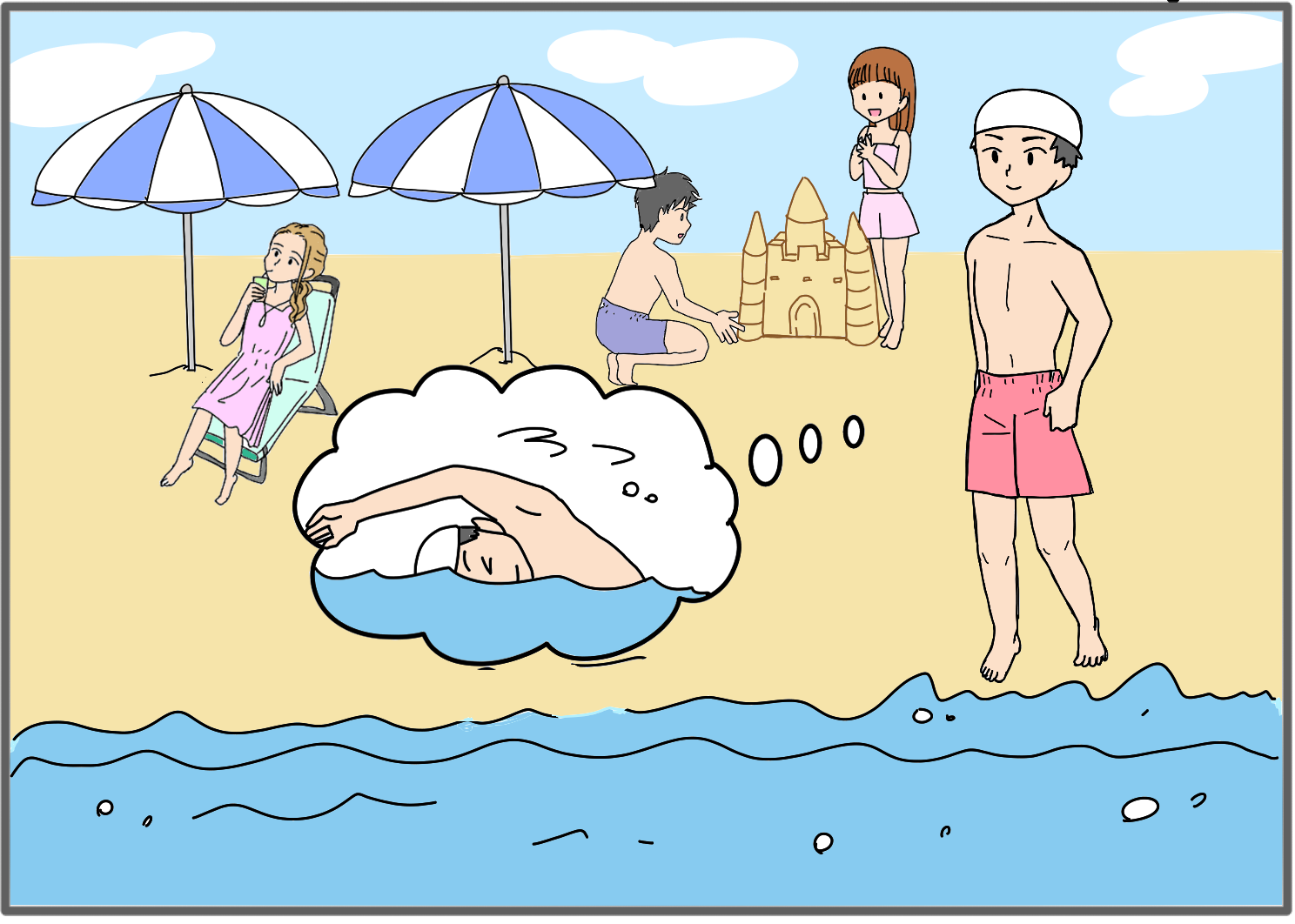
| 1. | How many people are at the beach? |
| Answer: | |
| 2. | What is the man going to do? |
| Answer: |
PART B_3
Now, let’s review your answers.
ではあなたの答えを復習してみましょう。
(Please review your student’s answers by sending the correct answers in complete sentences. After that, ask your student to read aloud his or her corrected answers.)
PART B_4
PART C_1
Now, I will ask you a question. I will check if your sentence is complete and if the grammar is correct. Please answer in one sentence only.
講師が質問をしますので、自分の考えをもとに答えましょう。講師は文法と完全な文章であるかを確認します。 また、一つの文で答えて下さい。
PART C_2
| Question: | What did you do on your last vacation? |
| Answer: |
PART C_3
Now, let’s review your answer. After that, please read aloud your corrected answer.
ではあなたの答えを復習してみましょう。その後、修正したあなたの答えを読んでみましょう。
(Please review your student’s answer by sending the correct answer in a complete sentence. After that, ask your student to read aloud his or her corrected answer.)
PART C_4
PART D_1
Now, I will ask you questions. I will check if your sentences are complete and if the grammar is correct. Please answer the second question in one sentence only.
講師が質問をしますので、自分の考えをもとに答えましょう。講師は文法と完全な文章であるかを確認します。 また、質問2は一つの文で答えて下さい。
PART D_2
| 1. | Do you enjoy going to the beach? |
| Answer: |
| 2. |
If yes, please tell me more. If not, where do you like to go during vacation? |
| Answer: |
PART D_3
Now, let’s review your answers. After that, please read aloud your corrected answers.
ではあなたの答えを復習してみましょう。その後、修正したあなたの答えを読んでみましょう。
(Please review your student’s answers by sending the correct answers in complete sentences. After that, ask your student to read aloud his or her corrected answers.)
PART D_4
PART E_1
You will answer the questions based on the information below.
以下の情報をもとに、質問にこたえましょう。
PART E_2
You are on vacation in London. Look at the tour schedule and answer the following questions.
あなたはロンドンで休暇を過ごしています。ツアーのスケジュールを見て、次の質問に答えてください。

| 1. | How long is the museum tour? |
| Answer: | |
| 2. | What time will the palace tour start? |
| Answer: | |
| 3. | When is the theater play? |
| Answer: |
PART E_3
Now, let’s review your answers. After that, please read aloud your corrected answers.
ではあなたの答えを復習してみましょう。その後、修正したあなたの答えを読んでみましょう。
(Please review your student’s answers by sending the correct answers in complete sentences. After that, ask your student to read aloud his or her corrected answers.)
PART E_4
REVIEW AND FEEDBACK
Now, let us review the things that you learned in this lesson.
ではこのレッスンで学んだことを振り返りましょう。
(Please give a short feedback on how your student did in your class.)
| Grammar 文法 |
Pronunciation 発音 | Vocabulary 単語 |
Comprehension 理解 |
|
|---|---|---|---|---|
 GOOD GOOD |
文法の誤りはほとんどなく、完全な文章で話すことができる | ほとんどの単語をはっきりと正しく発音することができる | 習った表現を適切に使うことができる | 文章を理解し、質問に正しく答えることができる |
 FAIR |
文法の誤りはあるが、完全な文章で話すことができる | 発音の練習が必要な言葉がいくつかある | たまにミスはあるが、習った表現を適切に使うことができる | 文章を完全に理解するのは難しく、質問に正しく答えられないときもある |
 POOR |
文章で話すのは難しく、単語だけで話すことができる | 発音の練習が必要である | 習った単語と表現を少しだけ使うことができる | 文章を理解するのは難しく、質問に答えるのは難しい |


